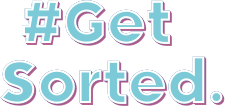How to navigate the web
Did you know? Sometimes you have to be bold like SPIDER-GWEN™.
When was the last time you read an actual paper newspaper to check the weather and other news? Sure, some watch TV or listen to the radio, but if you want information quickly, you search for it on the internet. With more information moving online, navigating the internet has become an essential skill.
Whether you are a newbie or an expert, the following tips will help you surf the net safely and more efficiently.
Know the lingo
Do you know the following terms - browser, website, webpage, search engine, or URL? Learning basic terms and tools will help you follow instructions and navigate the internet better.
Here are some of the most used terms you should know:
Cyber - anything relating to computers, information technology, and virtual reality. Examples: cyberspace is the online or internet environment; cyber security pertains to protecting your information while online; cybercrimes are illegal activities done online like hacking (see definition below), cyber bullying, or email scams.
Blog - thoughts, opinions, experiences related by a person or group, written in informal or conversational style. It is regularly published online. Blog is short for “web log,” a version of an online journal.
FAQ - short for Frequently Asked Questions. Before joining a forum, social media group, or an online chat, it would be helpful to read the FAQ to learn the group’s do’s and don’ts.
URL - short for Uniform Resource Locator. It is simply the Internet address of a site.
Virtual - in cyberspeak, virtual means existing in cyberspace. It is something that does not exist physically but is simulated through software in a computer system.
World Wide Web (the Web) - this is used interchangeably with the word “Internet” but it actually has a different meaning. The Web is a way of accessing information on the Internet while the Internet is a massive network of networks that connects millions of computers globally. The Web is just a portion of the Internet. For instance, you use the Internet to send an email, not the Web (Webopedia).
Search efficiently
The most used search engine today is Google and it is for good reason. Google has the largest single catalogue of webpages plus, it is fast, reliable, and user-friendly. It also has Google Scholar search which is a great tool for looking up scientific and hard-research materials. Of course, you may use other search engines such as Bing or Yahoo, and others if you need an option. If you have issues about online privacy, you can consider using DuckDuckGo since it doesn’t track your searches.
Another part of searching efficiently is knowing how to search in the first place. You save time significantly (and have more accurate results) when you key in exact keywords or phrases. If your first attempt does not yield significant results, reword or rephrase your search using synonyms. Try and think of the most common way people might look for the same thing or topic.
Stay away from fake or fraudulent sites
Fraudulent sites are dangerous because they contain false information that can endanger or scam you. Many of these are phishing sites. Phishing is when an entity gets you to disclose personal information which they can use to harm or steal money from you. But how do you know which sites are real, good, reliable, or credible? There are several ways:
Check the URL - look at the address bar. If you are required to provide personal or financial information on a site, the address should show that it is a secure site. It should start with https not http. You will also see a lock symbol on the right hand side of the address bar. If you’re clicking on a link to get to a webpage, make sure that the web address does not change when you reach the site. Be wary when the domain register changes, for example to .com, .net or .biz, when it was .edu or .ca in the original.
Train your eyes - Does the page look well designed? Is it too crowded? Does it have a lot of ads, download buttons, or clickbait advertising? How about spelling, grammatical or typographical errors? Haphazard design and no editing/proofreading are sure signs that a website is unreliable or fake.
Bookmark
Found a site that you like and would probably go back to again and again? Bookmark it. This will help you go back to the site without having to search for it again. You will find this function on most browsers. Click on the star on the address bar or click on the three dots on the upper left side. “Bookmark” is the sixth choice on the drop-down menu.
Don’t share if you’re not sure
Did you come upon a fantastic offer? Read through an amazing claim? Or read late-breaking news that is hard to believe? If it’s too good to be true, it probably is. If you’re not sure if something you read on the internet is factual, investigate and give it time before clicking share. Don’t be among those who spread lies and fake news among their peers. Some, especially those using social media, think that they are doing others a favour when they share such information. Being a discerning reader is the mark of a genuinely tech-savvy netizen. Remember, false information is dangerous and can cause real harm, so don’t spread it.

